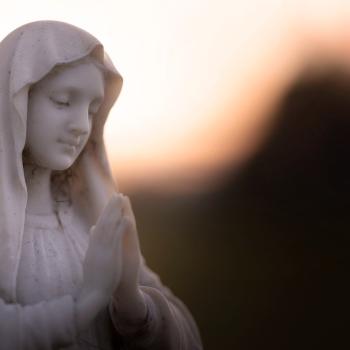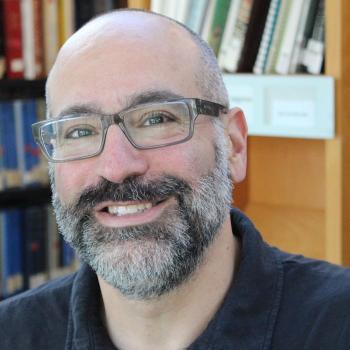It is my daydream for the future of black churches in America. It is my way of taking the best of the past to liberate the people who are still oppressed in black churches. It is my hope for connecting worship, faith, and social action. It is my vision for the church where I want to raise my children. It is also my anguish over the current state of black churches.
Most black churches make me cry. I cry because something I love so deeply has become so conservative, fundamentalist, bibliolatrous, patriarchal, homophobic, and capitalist, that I can barely drive myself there on Sunday mornings. I mourn so intensely that I can feel the turning of my stomach. When I think of the future, it doesn't look good.
Like a child under a summer sky whose imagination is formed under morphing clouds, I lay on my back and started to dream. As I dreamt, I found my dreams latching up with the dreams of others. And then I realized. I realized that there were communities who were living my dreams. There is The Fellowship, Unity Fellowship Church, and the Black Church and Domestic Violence Institute. There is the Universal Foundation for Better Living, The Balm in Gilead, and Passing the Mantle. There is the Black Youth Project and the Samuel DeWitt Proctor Conference. There are individual churches around the country, most small and a couple that are large, who welcome all people, give children leadership, engage in social justice, and enact systems of accountability. They manage to do this while singing gospel music and teaching about Jesus.
I can't predict that these churches will have the largest offerings. I'm fairly convinced that they won't get much media play. I'm not even sure I trust large numbers of people to recognize the ongoing need in their midst.
I do know that black churches have the resources to harness faith and pursue justice. I also know that black churches can reach the deepest part of a person's pain and motivate them to push through to the next day. I know that there are people -- sprinkled around the country -- who walked out on faith, and would do it again. They are pushing for a more creative future.
Rev. Monica A. Coleman, Ph.D. is an ordained elder of the African Methodist Episcopal Church and the author of The Dinah Project: a Handbook for Congregational Response to Sexual Violence and Making a Way Out of No Way: a Womanist Theology. Coleman is the Associate Professor of Constructive Theology and African American Religions at Claremont School of Theology and Co-Director of the Center for Process Studies. In 2005, the interdenominational preaching magazine The African American Pulpit named Coleman one of the "Top 20 to Watch" -- The New Generation of Leading Clergy: Preachers under 40.




